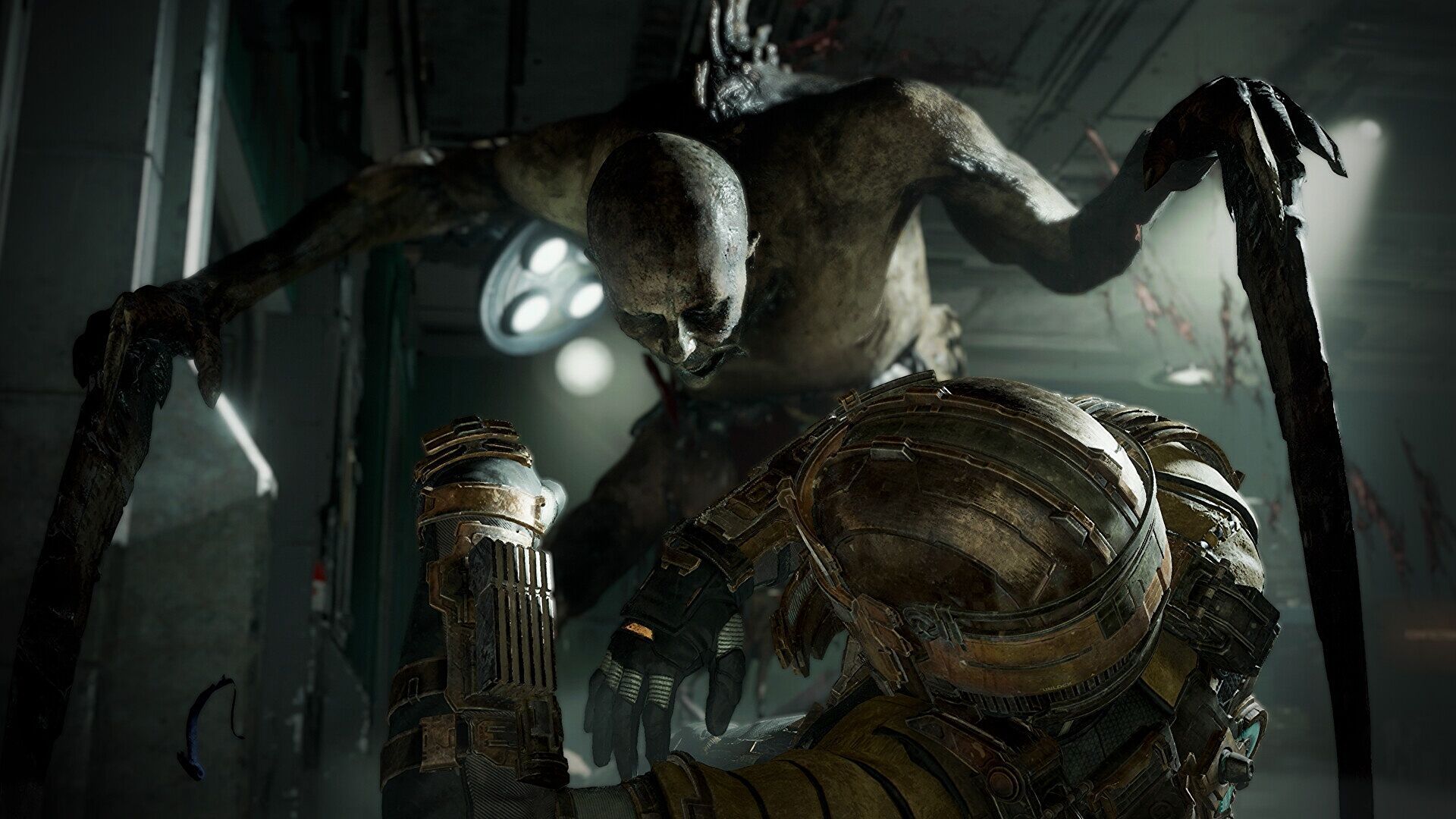Why I Won’t Be Buying the Dead Space Remake
It's not me, it's EA

The Dead Space Remake has launched to nearly universal acclaim, with strong scores from both critics and players, and will probably end up being one of the strongest horror releases of the year. Having said that, there are two issues that will prevent me from buying the game: one that would, by itself, prevent me from getting the game for some time, and other baggage that will prevent it indefinitely.
The Remake's Merits
When you release a game, it doesn't exist in a vacuum, it competes against what's in the market, and, in the case of remakes, it also has to compete against the original.
The Dead Space remake has seen a weapon rebalance, new graphics, new zero gravity controls, more side quests, and Isaac now has full voice acting. While these are all potentially good changes, does it warrant a $60 USD price tag (and it even has a 10-dollar DLC)? Especially considering the original is still playable on current hardware, either by using a PC* or using Xbox's backward compatibility, it may be hard for individual players to justify the spend.
Of course, pricing issues are usually temporary (unless you're Nintendo) as you can expect game prices to go down over time. On the other hand, EA's previous actions won't just go away.

Dead Space
The year is 2008, and a new game by EA Redwood Shores (later renamed to Visceral Games) has just been released: Dead Space. While not technically the start of the franchise, EA saw promise with it, and invested heavily to market it, releasing (among other things) a comic book series prior to the launch of the game. They'd also invest in animated movies, complex interactive websites, novels, and spin-off games to promote the franchise.
Despite what EA hoped, and even with its critical success, the game didn't sell how it had hoped or wanted. Changes were made to the sequel, with many refinements to the controls that made the game feel less clunky, but many consider that the overall atmosphere of the game suffers as a result of an increased focus on the combat. Not only that but Dead Space 2 also had a tacked-on multiplayer mode like many games in that era.
Still, no matter which game you liked better, if you liked one of them, odds are you liked both games. But, yet again, while fans were happy, EA was not.
So EA gave an ultimatum to Visceral Games: If Dead Space 3 didn't sell 5 million copies, the franchise wouldn't continue. In an attempt to seek more sales, the game was even more action-oriented by doing things like reducing the importance of shooting limbs, having universal ammo, introducing human enemies, and adding a cover system à la Gears of War. Complaints ranged from a story that wasn't well received, to a co-op mode without split-screen mode that gated some of the story content, as well as microtransactions. In an effort to appeal to a wider market, EA demanded changes that would kill the franchise, getting the worst scores and sales out of the three main games.
EA dug Dead Space's grave and made Visceral Games bury the franchise, only for them to be shut down and buried by EA a few years later. EA sullied the franchise and the game studio suffered the consequences, and I have no interest in rewarding EA for selling me the same game that they killed.
Bonus
Like many gamers who have railed against EA for years, Dead Space doesn't represent the first time I've taken issue with how the mega-publisher sold one of their games.
When it comes to reselling games from studios they killed, we have the example of 2020's Command & Conquer: Remastered, with the original being made by the long-defunct Westwood Studios.
We also have Burnout Paradise Remastered, released in 2018. Compared to Dead Space, changes were a lot more minor in the graphics department, especially if you had it on PC, but the content, on the other hand, served to highlight the poor way PC owners had been treated.

The original version for PC was left incomplete compared to the console version, missing DLC that featured an online game mode, vehicles, and even an entirely new location. If you actually wanted the full experience, you had to double-dip as this wasn't offered as a free upgrade for existing owners, unlike how the Mafia II and Bioshock remasters were handled.
At this point, and all things considered, the act of remastering was "fine" as those who had Burnout on PC likely owned the game for many years already and weren't expecting the DLC to land. Unfortunately, things didn't end there, as EA would shut down the server of the original game 1 year after releasing the remaster, all but forcing players to migrate to the new release.
I'm not here to argue for EA to perpetually pay for the servers of old games. The main issue is that the DLC content depends on the server being up for validation, meaning that the shutdown kneecapped the original release, causing owners to lose access to a chunk of the Burnout experience.
Rather than updating the game to allow for the DLC to be accessible past the server shutdown, they did nothing, instead leaving it to the community to make a fix of their own.
Need for Speed Hot Pursuit Remastered shares a similar tale, where the original PC port is missing a number of DLC, though they aren't as significant as they were in Burnout.
In this case, the original release wasn't worsened after the fact, and the remaster does generally offer small improvements over the original when it comes to graphics. But despite being several times larger, the remaster has lower-resolution textures compared to the original PC release.
For some reason, PC versions of 7th-generation EA-published games often got the short end of the stick when it came to content.
Closing Words
Sorry, it's not you, it's your parents. I feel EA has poisoned the well with their actions throughout the years and I have no desire to support them, at least when it comes to these games. Each person has different criteria for what makes a game worth buying, so I don't expect others to follow suit, but I wanted to get my reasons off my chest.
Have you ever passed on a re-release, remaster, remake, reboot — whatever you want to call them — for reasons outside the work itself? Did anything sour you to the point of wanting to avoid it? Let us know in the comments!
